In today’s digital-first world, technology plays a central role in how companies plan, execute, and optimize their marketing strategies. From automation and analytics to customer relationship management, Martech tools every business needs have become essential for achieving growth and maintaining competitiveness. As new platforms emerge and existing ones evolve, businesses must stay informed about which technologies deliver the most impact.
This article explores the essential Martech categories, highlights examples, and explains why these tools are critical for business success in 2025.
What Are Martech Tools?
Martech, short for “marketing technology,” refers to the software and platforms marketers use to plan, execute, and measure campaigns. The Martech tools every business needs combine automation, data analysis, personalization, and workflow management to streamline marketing operations. Whether you run a startup or an enterprise, Martech helps align marketing strategies with customer behavior and business goals.
Why Martech Matters for Businesses
The digital landscape has grown increasingly competitive. Customers expect personalized experiences, fast responses, and seamless engagement across multiple channels. Businesses that rely solely on manual processes cannot keep up with these expectations.
That’s why Martech has become vital. The right technology helps businesses:
- Automate repetitive tasks and save time
- Collect and analyze customer data for insights
- Personalize content and campaigns
- Improve collaboration across teams
- Optimize return on marketing investments
In short, the Martech tools every business needs serve as the foundation for modern, scalable marketing strategies.
Categories of Martech Tools Every Business Needs
Let’s break down the most important Martech categories and see how they shape business success.
1. Customer Relationship Management (CRM) Tools
CRM platforms are central to organizing customer data, tracking interactions, and nurturing relationships. A good CRM ensures sales and marketing teams have a unified view of prospects and customers.
Examples: Salesforce, HubSpot CRM, Zoho CRM.
Why It’s Needed: Without CRM, businesses struggle to manage leads and conversions effectively.
2. Marketing Automation Platforms
Automation tools take over repetitive tasks like email campaigns, social media scheduling, and lead nurturing. They save time, boost efficiency, and keep customer engagement consistent.
Examples: Marketo, Mailchimp, ActiveCampaign.
Why It’s Needed: These are among the Martech tools every business needs because they free up time for marketers to focus on strategy and creativity.
3. Analytics and Data Tools
Marketing without analytics is like flying blind. Data-driven insights allow businesses to evaluate performance, understand customer journeys, and allocate budgets effectively.
Examples: Google Analytics 4, Mixpanel, SEMrush.
Why It’s Needed: Analytics tools help marketers prove ROI and make smarter decisions.
4. Content Management Systems (CMS)
A CMS allows marketers to create, edit, and publish digital content efficiently. Modern CMS platforms also integrate SEO tools, analytics, and personalization features.
Examples: WordPress, Drupal, Webflow.
Why It’s Needed: Content is the backbone of digital marketing, and a CMS makes it manageable.
5. Social Media Management Tools
Brands must be present across multiple platforms, but managing each one manually is time-consuming. Social media tools simplify posting, monitoring, and measuring engagement.
Examples: Hootsuite, Buffer, Sprout Social.
Why It’s Needed: Among the Martech tools every business needs, social media tools ensure consistent brand visibility.
6. SEO and Keyword Research Tools
Search engine visibility drives organic growth. SEO platforms provide keyword insights, competitor analysis, and optimization recommendations.
Examples: Ahrefs, SEMrush, Moz.
Why It’s Needed: These tools ensure that businesses stay ahead in organic search rankings.
7. Email Marketing Platforms
Email remains one of the highest ROI channels. Dedicated email platforms help design, automate, and segment campaigns for maximum impact.
Examples: Constant Contact, Sendinblue, ConvertKit.
Why It’s Needed: Effective email campaigns drive conversions and nurture long-term customer relationships.
8. Personalization and Customer Data Platforms (CDPs)
Modern customers expect tailored experiences. CDPs unify customer data across channels, allowing businesses to personalize messaging in real-time.
Examples: Segment, Tealium, BlueConic.
Why It’s Needed: CDPs are increasingly part of the Martech tools every business needs to deliver individualized customer journeys.
9. Collaboration and Project Management Tools
Marketing involves multiple teams and tasks. Collaboration platforms keep workflows efficient and ensure deadlines are met.
Examples: Asana, Trello, Monday.com.
Why It’s Needed: Strong team collaboration leads to faster campaign execution.
10. Advertising Platforms and Programmatic Tools
Paid advertising remains a key growth driver. Platforms for programmatic advertising, retargeting, and budget optimization ensure higher returns.
Examples: Google Ads, Facebook Ads Manager, The Trade Desk.
Why It’s Needed: Advertising tools maximize reach and ensure better targeting.
How to Choose the Right Martech Tools
Not all platforms suit every business. When deciding which Martech to adopt, consider:
- Business Goals: Choose tools that align with objectives like lead generation or brand awareness.
- Budget: Avoid investing in multiple tools with overlapping features.
- Scalability: Select platforms that can grow with your business.
- Integration: Ensure tools integrate smoothly with existing systems.
The Martech tools every business needs should simplify marketing, not complicate it.
Future Trends in Martech
The Martech landscape evolves rapidly, and in 2025 and beyond, businesses can expect major shifts. AI-powered personalization will go mainstream, while predictive analytics will guide smarter decision-making. Platforms will integrate voice search optimization, and stricter data laws will drive privacy-first marketing. At the same time, all-in-one solutions will replace fragmented tools. Companies that adopt these innovations will stay ahead and gain a clear competitive advantage.
Conclusion
From automation and analytics to personalization and collaboration, Martech not only empowers companies to work efficiently but also helps them scale effectively while achieving measurable results. Moreover, by carefully selecting and seamlessly integrating the right platforms, businesses can significantly boost customer engagement, consistently optimize performance, and ultimately outpace competitors in 2025.


